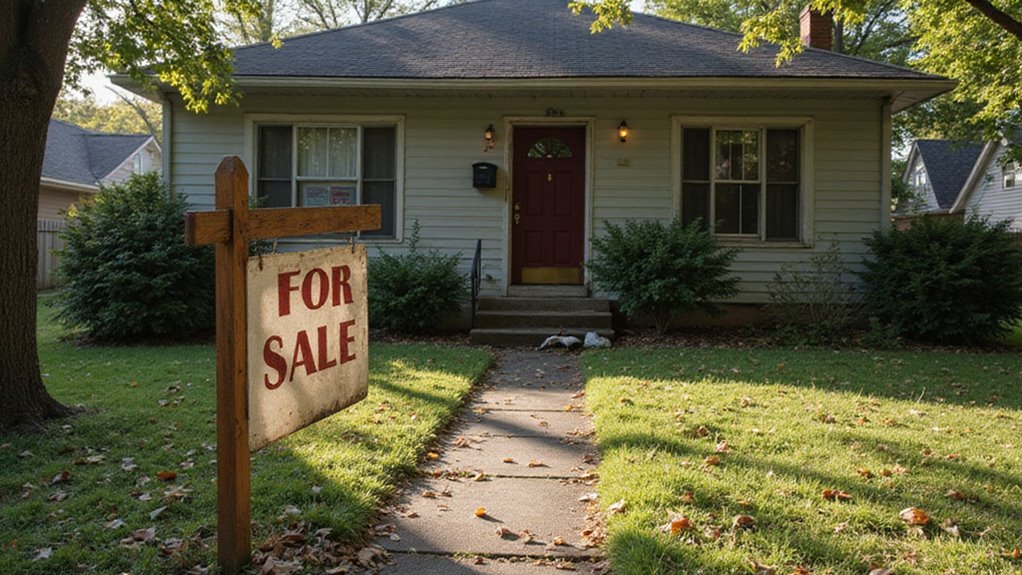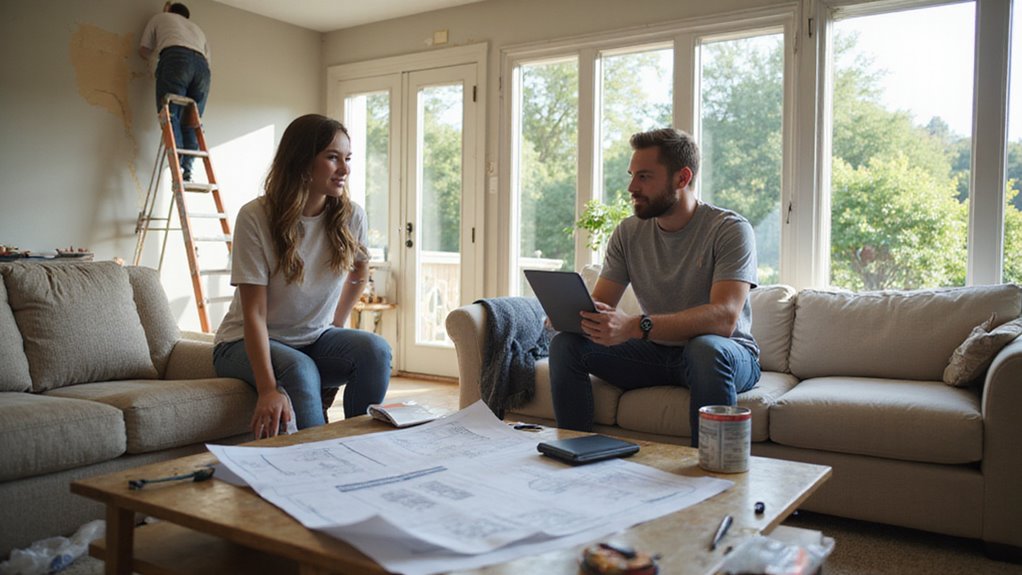When your home listing expires, you face a tough choice. Should you relist right away or wait? Timing your relist is crucial to attract buyers and get the best price.
If you relist too soon, your property may look stale to buyers. This can lower interest and reduce your bargaining power. However, waiting too long may cause you to lose buyers to other homes on the market.
The best time to relist after an expired listing is usually 30 to 90 days, depending on your local market. This window helps your property feel fresh again and keeps you in the game. With the right timing, you can regain buyer attention and improve your chances. This blog will guide you step-by-step to pick the perfect moment to relist and maximize your home’s appeal.
Key Takeaways
- Wait 2 to 4 weeks before relisting to review feedback, address issues, and adjust strategy for better results.
- Use the downtime to update photos, improve curb appeal, and complete any necessary repairs or upgrades.
- Consider local market conditions; relisting during peak seasons (spring/early summer) usually attracts more buyers.
- Avoid immediately relisting with no changes, as this can lead to listing fatigue and reduced buyer interest.
- Consult your real estate agent to analyze recent sales, set a competitive price, and plan an effective relaunch.
Understanding Why Listings Expire

A listing expires when a property does not sell within the agreed time. This usually happens because of overpricing, poor marketing, or market changes. Sellers must identify which of these reasons caused the listing to expire. Understanding the importance of accurate market value assessment can help prevent your home from sitting on the market too long.
Overpricing is the most common issue, according to the National Association of Realtors. About 51% of expired listings are priced above market value. If your price is too high, buyers may not show interest.
Marketing also plays a key role. If your listing does not reach enough qualified buyers, it may not sell. You should review your marketing efforts to find any gaps.
Timing matters when you relist your property. If you relist without fixing the main issues, the result may be the same. Addressing the problems first can give you better chances for a sale.
Before relisting, some homeowners consider using a flat-fee MLS listing service to save on agent commissions and reach more buyers through major online platforms.
Assessing Current Market Conditions
To decide when to relist, you need to look at current market conditions. Check recent home sales, average days on market, and how many homes are for sale. This data shows if the market benefits buyers or sellers. If you pay attention to supply and demand dynamics, you’ll see that low inventory and high buyer demand often lead to quicker and more competitive sales. If homes are taking longer to sell, you may need to adjust your price or timing. Low inventory and high demand can allow for a faster sale at a good price.
Always check for seasonal changes, interest rates, and local job trends. If the market is slow, consider waiting or listing at a lower price. When demand is strong, you can relist quickly for better results. Using market data helps you choose the best time and price to relist. If your property has become distressed or is facing decreased property value, understanding how cash buyers operate in different market conditions can also influence your relisting strategy.
Reviewing Feedback From Previous Showings

You need to systematically analyze all showing agent comments to spot recurring themes and actionable insights. Focus on identifying common buyer concerns, such as pricing objections, layout issues, or deferred maintenance. Leveraging this data helps you address barriers to sale before relisting and improves your property’s market positioning.
Additionally, reviewing market analysis can provide valuable perspective on whether your initial listing price aligned with current buyer expectations, which is crucial for making effective adjustments before relisting. Incorporating feedback from cash buyers, who often offer as-is sales, can help you understand what features or conditions may be more readily accepted in the current market.
Analyzing Showing Agent Comments
Analyzing showing agent comments helps you understand why your home did not sell before. Agent feedback shows what buyers liked or disliked. If you address these comments, you can improve your property’s chances when relisting.
Look for patterns in agent remarks to spot common problems. If several agents mention price or condition, these are key issues. Fixing them may attract more buyers.
Listing status comments reveal how your home compares to others nearby. Agents may mention if your property seems overpriced or not competitive. Adjusting your price or marketing may help your listing stand out.
Pay attention to buyer reactions shared by agents. If buyers seem uninterested or disappointed, something about the home needs attention. Changing these factors may increase buyer interest.
Always use agent feedback to guide your updates and decisions. If you take action based on this information, you can strengthen your relisting strategy.
Identifying Common Buyer Concerns
You can spot common buyer concerns by reviewing feedback from previous showings. Most buyers mention issues like high price, property condition, or location. These concerns often explain why your home did not sell.
If agents say your price is too high, you should compare it with similar homes. Comments about repairs or features mean buyers want updates. You may need to fix these problems before listing again.
Homes that stay on the market usually have price or condition issues. You can group feedback into categories for easier analysis. If you address these concerns, your home may sell faster next time.
Evaluating Your Listing Price
Evaluating your listing price is important before you relist your home. A wrong price can make your home stay unsold for a long time. It can also reduce buyer interest.
Homeowners should study recent sales and current listings in their area. Market trends can change quickly, so compare your price to similar homes. If your home had no offers, your price may not match what buyers expect. The ideal selling season in your local area can also influence how buyers react to your price and how quickly your home receives attention.
Buyers notice value and react to price changes. Overpricing often keeps buyers away and increases your home’s time on the market. Underpricing can mean you lose out on profit.
If you want more buyer interest, set a price that fits current market data. The right price can attract serious buyers and create more offers. Adjust your listing strategy to improve your results.
Before setting your price, it’s crucial to consult professionals or compare prices of similar sold properties to ensure your home is positioned correctly in the current market.
Making Necessary Home Improvements

Before you relist, address key inspection report issues to eliminate buyer objections and strengthen your negotiating position. Data shows homes with improved curb appeal attract more showings and achieve higher sale prices. Prioritize repairs and visual upgrades to maximize your property’s market impact.
Make sure to pay special attention to electrical system faults, as correcting these early can minimize risk of damage and reassure future buyers. Additionally, conducting a thorough property lien search can ensure transparency and prevent unexpected obstacles during the selling process.
Addressing Inspection Report Issues
After you get the inspection report, focus on major issues that could affect selling your home. These problems can lower your home’s value and make it harder to sell. Fixing them helps attract buyers and prevents future problems.
You should review the report with your agent and note urgent concerns. Licensed contractors can give clear repair estimates for these items. If you have cost details, you can negotiate better with buyers.
Repairs that affect safety or the home’s structure should come first. Completing these repairs quickly builds buyer trust. If you fix key issues, you are less likely to face deal delays or cancellations.
Enhancing Curb Appeal
Enhancing curb appeal makes your home more attractive to buyers. A tidy and inviting exterior can help your home sell faster and for more money. If you want a good first impression, start with the outside.
Landscaping is important and can offer a strong return on investment. If you upgrade your lawn, add fresh mulch, and plant seasonal flowers, buyers will notice. These simple steps make your home look well cared for.
You should also fix any exterior problems. If the paint is chipped or the siding is damaged, buyers may hesitate. Power washing the driveway and walkways can make everything look fresh.
If you install a new front door or update house numbers and lighting, your home stands out. Modern fixtures make it feel current. These changes help attract more buyers and may bring in higher offers.
Updating Staging and Photography
Staging and photography updates are important when relisting a property. Good presentation helps attract new buyers and renew interest. If you want better results, focus on these areas.
Updating staging and photography is key to attracting buyers and giving your relisted property a fresh start in the market.
Staging should look modern, clean, and neutral to appeal to many buyers. Declutter each room and choose simple decorations. If you update the staging, your listing can stand out. Addressing noticeable issues, like fixing leaky faucets, can also make your home more appealing to buyers.
Professional photos help your home look its best online. High-quality images bring in more views and showing requests. If you invest in new photos, buyers may notice features they missed before.
If your home has special upgrades or unique details, highlight them in both photos and descriptions. Strategic updates can change how buyers see your property. These changes can make a big difference in how quickly your home sells.
Before relisting, you may also want to check the company’s reputation if you plan to work with a cash house purchasing company to ensure you are dealing with a legitimate and trustworthy buyer.
Reconsidering Your Marketing Strategy

Start by analyzing your past listing’s performance metrics to identify where engagement dropped off. Update your visuals and listing copy to align with current buyer preferences and market trends. Leveraging this data-driven approach ensures your relist stands out and attracts qualified buyers.
Reviewing recent sales and local market trends can also help you set a more competitive price for your relisted property. If you’ve recently inherited the property, understanding the step-up in basis can help you determine the most tax-efficient timing and pricing for your next listing.
Analyze Past Listing Performance
A careful review of your past listing’s performance helps you plan your next steps. Look at how long your property was listed and how many buyers visited. This information shows what worked and what needs to change.
Check if your asking price matched other similar homes in the market. If your price was too high, fewer buyers may have shown interest. Adjust your strategy if the price was a problem.
Read all feedback from buyers and your agent. Honest comments can reveal issues with your home or marketing. If you notice patterns, address them in your new listing.
Use these details to make better choices next time. A well-informed plan can attract more buyers and help you sell faster. If you improve your approach, you increase your chances of success.
Update Visuals and Copy
To update your visuals and copy, first use new high-quality photos. Professional images help listings sell faster and attract higher offers. If you include virtual tours or fresh staging, you can further increase buyer interest.
Audit your listing description for clarity and appeal. Highlight recent upgrades, neighborhood features, and what makes your property unique. Use simple, benefit-focused language and include keywords your target buyers search for.
If you change the price, make sure your marketing matches the new figure. Updated visuals and copy should clearly reflect any price adjustments. This helps set buyer expectations and can shorten the time your home stays on the market.
Timing Seasonal Market Trends
Seasonal market trends can affect how quickly and for how much your home sells. Listing in spring or early summer often brings more buyers and higher offers. If you want the best results, you should follow these patterns.
More buyers are active in peak seasons, which means more showings and offers. Homes usually sell faster during these times. If you relist when demand is high, you may get better results.
Pricing should match the market. In a seller’s market, you can set a higher price. If demand is low, you might need a lower price to attract buyers.
Marketing works best when more people are looking for homes. Focus your advertising during busy seasons for better exposure. If you do this, your home may be seen as more valuable.
If you’re considering downsizing for retirement, relisting during a peak season can help you unlock equity in home and maximize your financial returns.
Communicating With Your Real Estate Agent

You need to set clear expectations with your agent regarding timelines, pricing, and feedback cycles. Review current market data together to assess shifts in buyer demand or competitive inventory since your initial listing. Collaborate to revise your marketing strategy using performance metrics and recent trends for a stronger relaunch.
Setting Clear Expectations
Setting clear expectations helps both you and your real estate agent work well together. It makes pricing, negotiating, and timing clear from the start. This approach increases your chances of selling your home quickly.
If you use clear goals and methods, your home is 34% more likely to sell in the first 30 days. You and your agent can avoid confusion and make better decisions. Good communication helps your home stand out in the market.
You should agree on a pricing plan based on current data. Decide how you want to handle offers and counteroffers. Set how often and how you will communicate with your agent.
Discussing Market Changes
Market changes can affect your home sale. You need to adjust your plan as the market shifts. Staying in contact with your agent helps you react quickly.
Your agent should give you recent sales data and current inventory numbers. These facts show if your price is still right. If the market slows, you may need to lower your price or change your marketing.
If buyer demand goes up, you could raise your price. Reviewing these numbers with your agent helps keep your plan up to date. This approach can improve your chances of selling your home.
Revisiting Marketing Strategies
Revisiting your marketing strategy helps keep your home listing competitive. Market changes can affect your sale, so regular reviews are important. If you assess your plan with your real estate agent, you can quickly spot what needs improvement.
Pricing should match current local sales and how long homes stay on the market. If your price is too high, you might need to lower it to attract buyers. Adjusting early can make a big difference.
Negotiation plans are important if you want strong offers. Your agent can help you prepare for counteroffers and special buyer requests. If you plan ahead, you will respond more confidently.
A fresh listing presentation can boost buyer interest. Updated photos and better staging help your home stand out online. If you improve your marketing materials, more buyers may visit your home.
Taking these steps can increase your chances of a successful sale. Regular updates show buyers you are serious about selling. If you stay proactive, you are more likely to succeed.
Determining the Right Waiting Period
Determining the right waiting period is important before relisting your home. If you relist too soon, buyers may think your property has issues. Waiting helps you protect your home’s value.
Most experts recommend a two- to four-week break before relisting. This gives you time to review feedback and adjust your pricing if needed. You can also prepare new marketing strategies during this break. A two- to four-week break before relisting lets you review feedback, adjust pricing, and refresh your marketing strategy.
If you time your relist with busy periods, more buyers will see your home. Consider listing at the start of a month or after popular local events. A well-timed relist can renew interest from both buyers and agents.
A careful approach helps you make a stronger impression. If you plan your relist well, you increase your chances for a successful sale. Always use the break to make smart changes and improve your selling strategy.
Avoiding the “Stale Listing” Stigma
Taking a break before relisting helps prevent your home from looking unwanted. Buyers may avoid homes that have been on the market too long. A property that sits too long often attracts lower offers.
Using fresh photos and new descriptions can make your listing stand out. Virtual tours can reach more buyers, especially those who live far away. If you update your marketing, you might see more interest and better offers.
You should also schedule new open houses to create excitement. A busy open house can make buyers feel urgency. If you follow these steps, your listing is less likely to become stale.
Using Off-Market Time Strategically
If you use your off-market time well, you can fix problems that stopped your home from selling. You should check market data to set a better price. If you adjust the price, you may see more buyer interest.
Owners can review feedback from earlier showings to spot common issues. If price or features were problems, you can make changes now. This is also a good time to talk to your agent and look at recent sales nearby.
You should study market trends like average days on market and local absorption rates. If you relist at the right time and price, you may attract more serious buyers. This can lower the chances of your listing expiring again.
Preparing for a Successful Relaunch
A well-timed relaunch increases buyer interest and helps your listing stand out. Homes listed during busy seasons often sell faster and for more money. Always review feedback from your previous listing and fix any issues before relaunching.
If you want excitement and readiness, update your marketing materials. Professional photos and clear descriptions attract more buyers. Improving curb appeal can make a strong first impression.
Legal documents must be clear and up to date to avoid problems. Ensure your new listing agreement follows local laws. If you address these points, your relaunch can be more successful.
Monitoring Competing Listings in Your Area
To stay competitive, you must keep track of similar listings in your area. Monitoring active, pending, and sold properties helps you set the right price. This ensures your property stands out when you relist.
Compare features, price changes, and marketing methods used by others. If you notice frequent price drops, consider adjusting your own price. Different marketing channels might also influence buyer interest.
Below is a sample comparison table:
| Address | List Price | Days on Market |
|---|---|---|
| 123 Main St | $425,000 | 18 |
| 456 Oak Ave | $439,000 | 9 |
| 789 Pine Ct | $415,000 | 26 |
| 321 Maple Dr | $430,000 | 12 |
Review these numbers often to spot trends. If you find your listing is above average in price or days on market, make changes. Regular checks help you relist at the best time with a better strategy.
Conclusion
If your listing has expired, it is important to take a short break before relisting. If you wait 2–4 weeks, you may attract more buyers and receive better offers. This pause gives you time to review feedback and update your marketing strategy.
If you want a faster solution, we buy houses for cash in any condition. If you need to sell quickly or avoid the hassle of relisting, we can help. You do not have to wait or make improvements before selling to us.
If you are ready to move forward, contact Greg Buys Houses today. We make selling your home simple and stress-free. Let us help you get a fair cash offer for your property.

